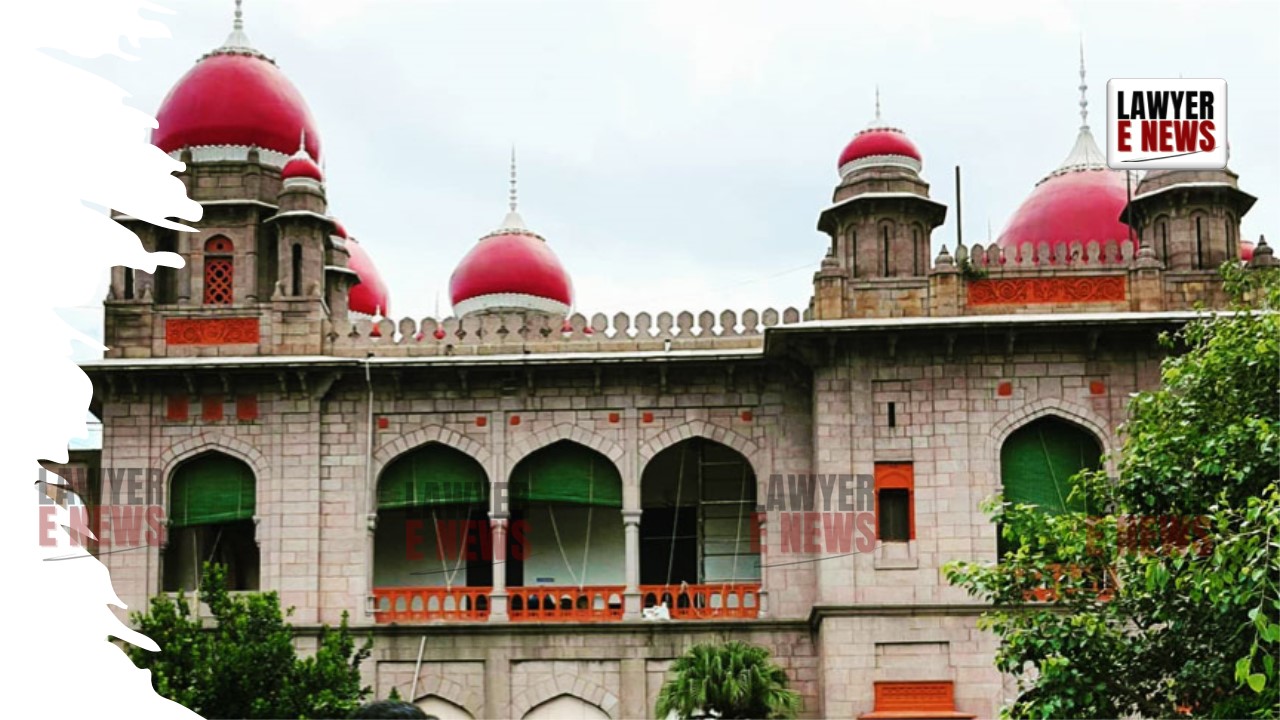-
by Admin
15 February 2026 5:35 AM



The Telangana High Court has dismissed a criminal petition filed by Nimmagadda Prasad seeking to quash the proceedings against him in a high-profile case involving allegations of quid pro quo investments linked to former Andhra Pradesh Chief Minister Y.S. Jagan Mohan Reddy. The court highlighted the need for a thorough trial to address the complex financial and legal issues involved, stressing that the inherent powers under Section 482 of the Code of Criminal Procedure (CrPC) should be used sparingly.
The case, which has garnered significant public attention, centers around allegations that Nimmagadda Prasad invested approximately Rs. 854.50 crores in companies owned by Y.S. Jagan Mohan Reddy. In return, Prasad's company was allegedly awarded the Vanpic Project, which involved developing two sea ports and related industrial infrastructure in Andhra Pradesh. The Central Bureau of Investigation (CBI) charged Prasad and several others, including high-ranking government officials, under multiple sections of the Indian Penal Code (IPC) and the Prevention of Corruption Act, following a detailed investigation initiated by public interest litigations.
The High Court emphasized that the allegations against Prasad, which involve intricate financial transactions and alleged corruption at high levels, necessitate a full trial. The court noted that the CBI's charge sheet laid a substantial factual foundation warranting judicial scrutiny. "The validity, admissibility, and relevancy of the material cannot be gone into by the courts while dealing with an application to quash the criminal proceedings," Justice K. Lakshman remarked.
Justice Lakshman reiterated the principles governing the exercise of inherent powers under Section 482 CrPC, emphasizing that this power should be invoked sparingly and only in the rarest of cases. The court cited precedents, including the Supreme Court's decision in Amit Kapoor v. Ramesh Chander, to underscore that the power to quash criminal proceedings is limited and should not be used to conduct a mini-trial or to evaluate evidence in detail.
The petitioner argued that his investments were bona fide and could not be equated to a bribe, and that the allotment of the Vanpic Project was in line with legal agreements. However, the court found these contentions insufficient to quash the proceedings at this stage. "Whether the allotment of the Vanpic Project and the lands in Shamshabad were mere coincidence or part of a larger criminal conspiracy is to be decided during trial," the court observed.
Justice K. Lakshman stated, "The continuation of the prosecution cannot be said to be an abuse of process. There is a prima facie case made out against the petitioner which requires a trial."
The Telangana High Court's decision to dismiss Nimmagadda Prasad's petition underscores the judiciary's commitment to ensuring that allegations of high-level corruption and financial misconduct are thoroughly examined through the judicial process. By affirming the need for a trial, the judgment reinforces the importance of legal scrutiny and accountability in cases involving complex financial and political dynamics. The petitioner has been granted the liberty to file a discharge petition before the trial court, which will decide the matter in accordance with the law, free from any influence from the High Court's observations.
Date of Decision: July 08, 2024
Nimmagadda Prasad vs. State Through CBI
